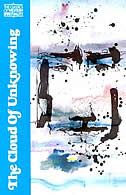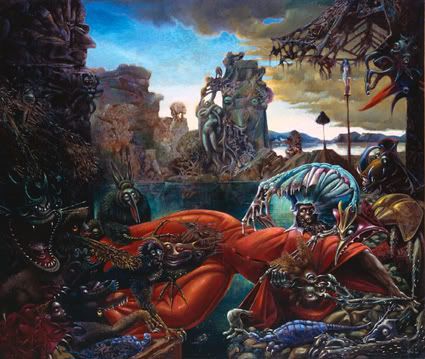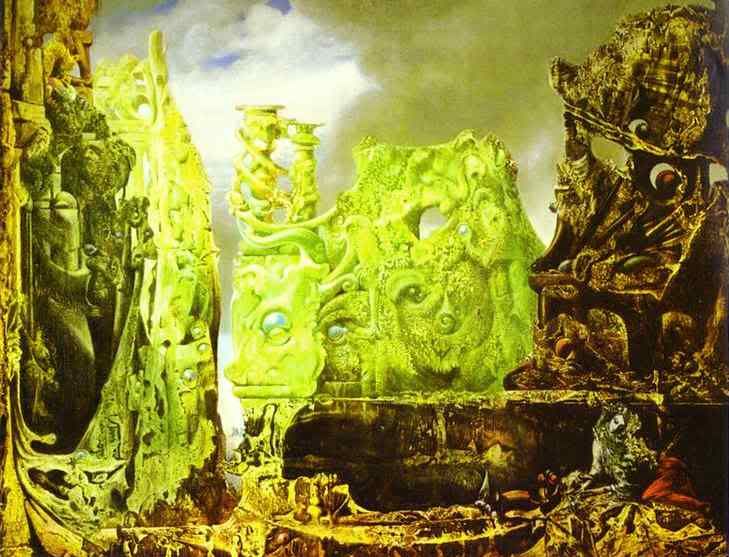The Saviours of God, or Black Extra-Cosmic Gulfs
While sitting at the computer reading an article on Lovecraft, I came across a paragraph that struck me as familiar--almost deja vu.
The abyss is negative space, a symbol of the unknown and a recognition of the existence of that which exceeds our understanding.
It got me thinking about the Cretan writer Nikos Kazantzakis - who is virtually contemporary with Lovecraft. From his book Spiritual Exercises:
WE COME from a dark abyss, we end in a dark abyss, and we call the luminous interval life.
Both practically forgotten modernists, passed off by modern scholarship as weird, mad or aberrations. Both share a distinct fascination with forces of the unknown, those unexplored regions of the cosmos - coming from within and without - called chaos, maelstrom, abyss or the proverbial "without form". It would be interesting to compare the main characters of these novelists - Kazantzakis's protagonist is usually a hero of Nietzschean ubermensch proportions. He takes on the world and boldly looks into the abyss of the cosmos - depravity, nonsense, existential crises, evil - and laughs in triumph. He posseses a superior, superhuman wisdom learned after harrowing the abyss of the cosmos. Lovecraft's protagonist recoils at his experience of the incomprehensible, his sanity loosened by a torturous, blood-curdling horror worse than St. Anthony's temptation. But this protagonist is scarred by his experience, afraid to relive the terror of memory - now a proverbial maelstrom in his mind - his story told with reticence.
On a side note I can't help but feel that most scholars of Lovecraft suffer from a medieval mindset - glossing his texts with paraphrased, biased readings of his texts, not giving his writing the autonomy it deserves. This is something I remember discussing with Jeremy - most people are afraid to base their ideas, or articles on the texts themselves, averting their focus to outside ideas like a medieval gloss of the Bible. What happened to studying texts for their sakes? Nope, we're back into the Dark Ages, scholarship hinged to the institution, so it prefers to make reference to itself more than the text itself. Looks like the University has come full circle, except it skipped Abelard and went straight to St. Thomas and his followers.




 At this point I like Tolkien's urge to escape from world weariness into fantasy, or 'fairy stories' as he calls them. I'm sick of exams right now, even though I've only written two . Rather I should say I'm sick of ventriloquism, or seeing and feeling good knowledge fall prey to mass production--becoming tawdry imitations. The sad part is I'm guilty of contributing to the system--by regurgitating knowledge with an apathetic mindset at my history exam, almost like a hack telemarketer or salesmen. For the exam I wrote what I consider a penny epic: ranging from the Carolingian Period (8th/9th) to the beginnings of the Indsturial Revolution (circa 18th century). What few good issues I could raise I learned from reading outside of the course--Heng's
At this point I like Tolkien's urge to escape from world weariness into fantasy, or 'fairy stories' as he calls them. I'm sick of exams right now, even though I've only written two . Rather I should say I'm sick of ventriloquism, or seeing and feeling good knowledge fall prey to mass production--becoming tawdry imitations. The sad part is I'm guilty of contributing to the system--by regurgitating knowledge with an apathetic mindset at my history exam, almost like a hack telemarketer or salesmen. For the exam I wrote what I consider a penny epic: ranging from the Carolingian Period (8th/9th) to the beginnings of the Indsturial Revolution (circa 18th century). What few good issues I could raise I learned from reading outside of the course--Heng's 






 doubt the material, though it should be valuable, is boring--like the teachers who teach it. I know, it's a bit immature on my part but I wish I could convince myself that I'm not just digesting dates and names. Alright, so I can't justify my laziness--I'm lazy, I admit it. I can be like the rest of my peers who take this course and could care less.
doubt the material, though it should be valuable, is boring--like the teachers who teach it. I know, it's a bit immature on my part but I wish I could convince myself that I'm not just digesting dates and names. Alright, so I can't justify my laziness--I'm lazy, I admit it. I can be like the rest of my peers who take this course and could care less.


